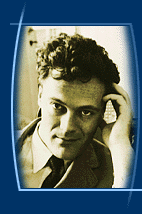Sarah LuriaAssociate Professor, Department of English |
Robert Lowell
Biography
 Robert Lowell (1917-1977) Robert Lowell (1917-1977) Robert Lowell was born in Boston, Massachusetts to a distinguished family; his ancestors include poets James Russell Lowell and Amy Lowell. Following his family's expectations, he attended Harvard University, but under the advice of the psychiatrist who treated him for the first of many breakdowns and manic episodes, transferred to Kenyon College. There he studied with poet John Crowe Ransom...and met lifelong friends and literary mentors Peter Taylor and Randall Jarrell. After graduation from Kenyon, Lowell moved to Louisiana State University, where he worked with New Critics Robert Penn Warren and Cleanth Brooks. He was imprisoned as a conscientious objector during World War II, and his fiercely held Catholicism was central in his early, often oracular and opaque poetry. In the late 1950s he began writing in an autobiographical strain. The publication of Life Studies (1959) [in which appeared "For the Union Dead"] heralded his much freer prosody, as well as what would be called the confessional school f poetry....At the time of his sudden death in a taxi, he was returning to his second wife, Elizabeth Hardwick, after breaking with his third, Lady Caroline Blackwood. (From Margaret Ferguson et al., eds, Norton Anthology of Poetry, 4th edition, New York: Norton, 1996, 1915).) For our study of this poem, note too that:
|